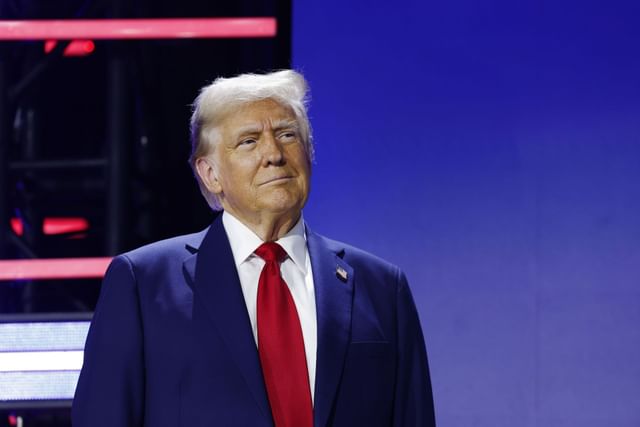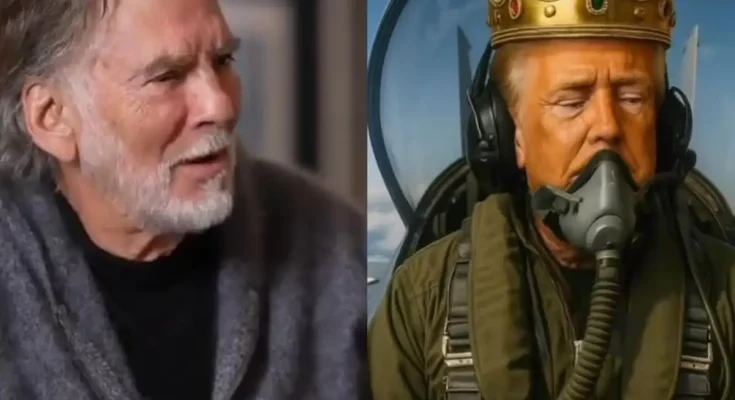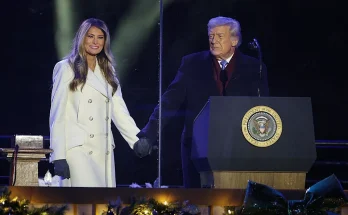When former President Donald Trump unveiled an AI-generated video of himself soaring through the skies to the pulse of Danger Zone, he likely expected cheers from supporters, not a public rebuke from the song’s creator. Yet within hours, the video that was meant to project strength and defiance became a symbol of artistic outrage — and a lesson in how far one artist will go to defend his work.
The AI video that crossed a line
Trump’s clip — posted on his social-media platform — showed him piloting a fighter jet, wearing a golden crown, and dumping mud over a crowd of protesters. The track thundering underneath was
Danger Zone, Kenny Loggins’ iconic anthem from Top Gun. But there was one problem: Loggins had never been asked for permission.
To many, the video was just another piece of Trump-style bravado. To Loggins, it was an insult — both to the spirit of his song and to the values he’s championed throughout his career. The 77-year-old singer, known for his warmth and reflective lyrics, saw something far more serious than political theater. He saw his music being twisted into a divisive statement.
“I would have said no — immediately.”
In a statement posted on his official website, Loggins wrote with a clarity that left no room for interpretation:
“This is an unauthorized use of my performance of
Danger Zone. Nobody asked me for my permission, which I would have denied.”
But he didn’t stop there. His message struck a deeply emotional note:
“I can’t imagine why anybody would want their music associated with something created with the sole purpose of dividing us. We’re all Americans — we’re all patriotic. It’s all of us.”
That single paragraph resonated with millions who feel exhausted by years of political hostility. It wasn’t about party lines — it was about respect. For Loggins, it was a stand for creative integrity, for unity, and for the idea that music should lift, not wound.
A ripple through the music world

Artists have long fought political misuse of their work, but few reactions have been as swift or heartfelt as Loggins’. His statement inspired renewed conversation among musicians who have faced similar experiences. From The Rolling Stones to The Village People, several bands have previously clashed with Trump’s campaign over unauthorized use of their songs.
Now, many in the industry see Loggins’ response as a rallying cry. “It’s not about politics,” one music rights attorney commented, “It’s about the right to control how your art is used — especially in an age when AI can copy, remix, and reframe reality overnight.”
Behind the scenes, advocacy groups that protect artists’ rights began amplifying Loggins’ words, urging Congress to clarify copyright laws around AI-generated content. The moment became bigger than Trump — it became about the future of creative ownership itself.
The White House’s mocking reply

Rather than defuse the controversy, the White House account fanned the flames with a meme quoting Tom Cruise’s famous line from Top Gun: “I feel the need — the need for speed.”
What might have been a light-hearted jab only fueled anger among Loggins’ supporters, who saw it as another attempt to turn art into ammunition.
A cultural turning point

To many Americans — especially those who grew up with
Top Gun and its soundtrack defining their youth — Loggins’ stand struck a nostalgic and moral chord. His voice reminded them of a time when patriotism felt unifying, not polarizing.
One fan wrote online, “He reminded us that songs like ‘Danger Zone’ belonged to every dreamer, every pilot, every kid who believed in freedom — not to political theater.”
And perhaps that’s the real power of this story. It’s not that Trump lost a song; it’s that America heard a musician reclaim his soul from the noise of division.
The final note
In the end, Kenny Loggins didn’t just ask for the song to be removed — he reclaimed what Danger Zone truly stands for: courage without cruelty, thrill without hatred, pride without arrogance.
In a time when AI can imitate almost anything, authenticity still has a human voice — and this week, it belonged to Kenny Loggins.




